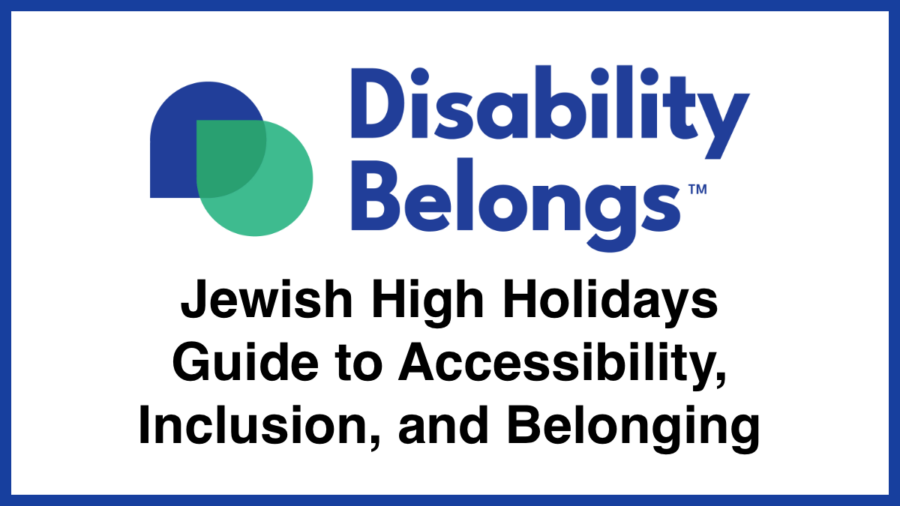Advancing Access and Belonging
We are pleased to share the successful conclusion of our ‘Raising Awareness and Advancing Disability Inclusion in the Christian Community’ project. This program was made possible through a Vital Worship, Vital Preaching Grant from the Calvin Institute of Christian Worship, Grand Rapids, Michigan, with funds provided by Lilly Endowment Inc.
During this project, we consulted with four congregations in Michigan, Texas, Washington, and California. The Faith and Spirituality team visited each congregation to lead accessibility and inclusion training, conduct accessibility audits of the physical spaces and community practices, and meet with congregational leaders to support strategic planning. Our team convened two virtual gatherings which included training on the foundations of disability inclusion and digital accessibility and facilitated discussions among cohort members to learn from each other’s successes. We created a series of resources for the congregations. [continue reading…]


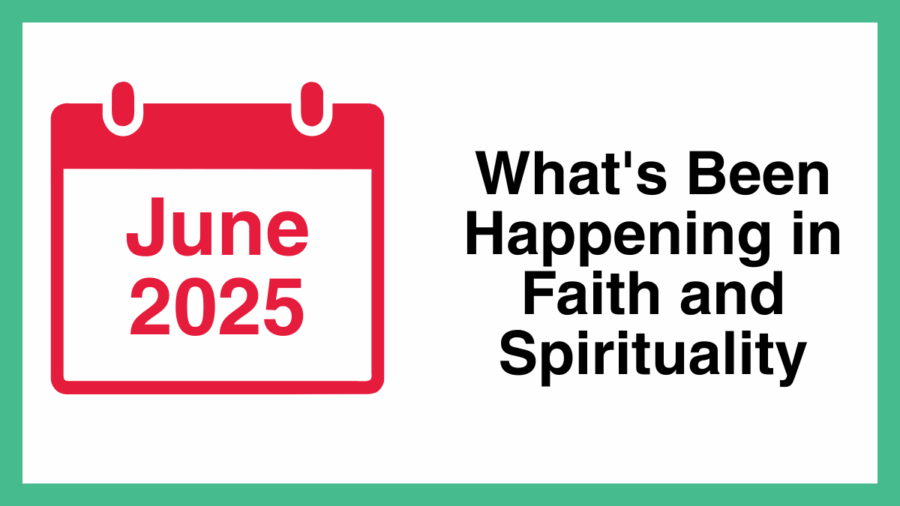
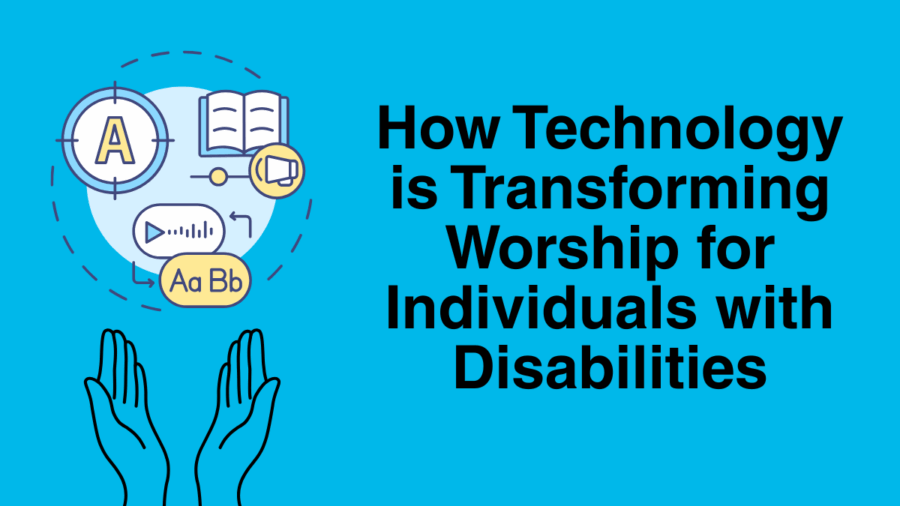
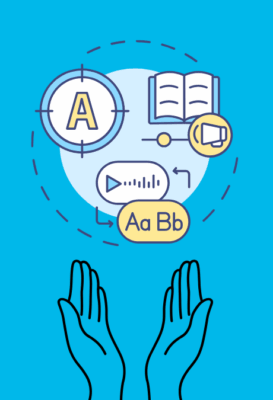 Technology is expanding access to faith and community, transforming worship spaces into environments where disabled people can fully belong, participate, and lead. As faith communities work to become more inclusive, tools like assistive technology, digital platforms, and artificial intelligence are creating new possibilities for connection and spiritual growth.
Technology is expanding access to faith and community, transforming worship spaces into environments where disabled people can fully belong, participate, and lead. As faith communities work to become more inclusive, tools like assistive technology, digital platforms, and artificial intelligence are creating new possibilities for connection and spiritual growth.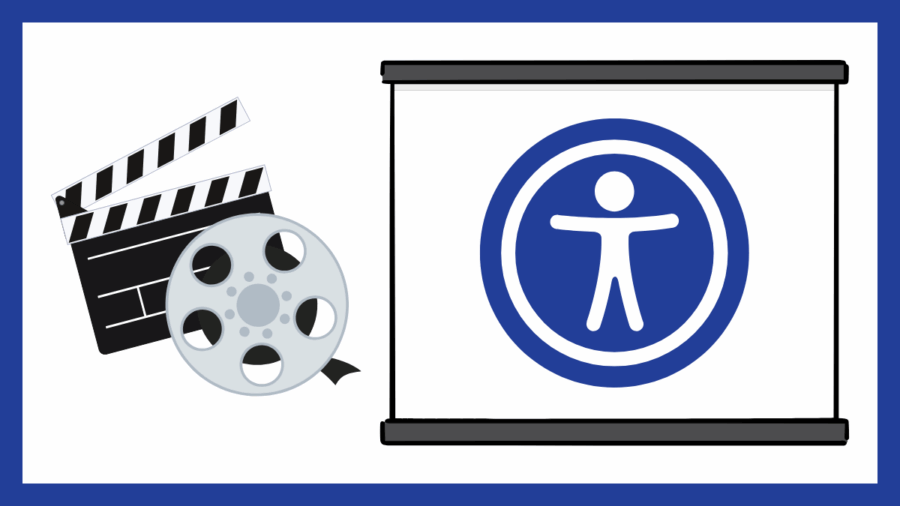
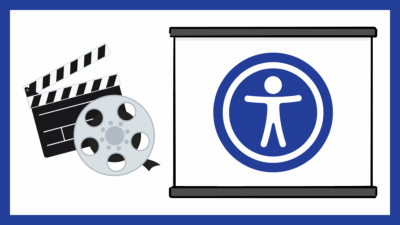 Media portrayals of disabled people are often limited to antiquated tropes or couched in ableist assumptions. Ensuring the lived experience of disabled people in faith-based content affirms that every human being has value and must be treated with respect.
Media portrayals of disabled people are often limited to antiquated tropes or couched in ableist assumptions. Ensuring the lived experience of disabled people in faith-based content affirms that every human being has value and must be treated with respect.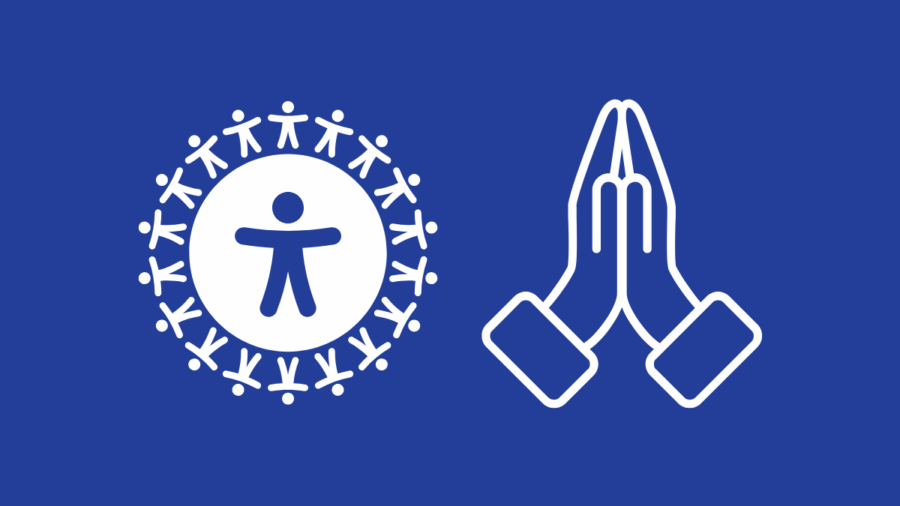
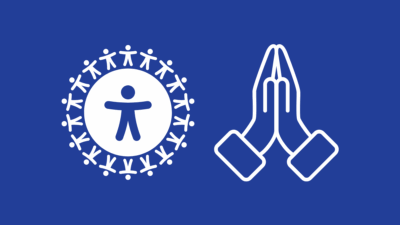 Community and belonging are central to many faith and spiritual traditions. Yet, people with disabilities face many barriers to access and inclusion. Addressing these barriers acts as a catalyst not just for participation, but for true belonging. Shifting the conversation from “can people with disabilities attend our worship services?” to “who is missing from our gatherings, and what would it take to make everyone feel seen, heard, and valued here?” demonstrates how accessibility can move beyond welcoming to create genuine belonging.
Community and belonging are central to many faith and spiritual traditions. Yet, people with disabilities face many barriers to access and inclusion. Addressing these barriers acts as a catalyst not just for participation, but for true belonging. Shifting the conversation from “can people with disabilities attend our worship services?” to “who is missing from our gatherings, and what would it take to make everyone feel seen, heard, and valued here?” demonstrates how accessibility can move beyond welcoming to create genuine belonging.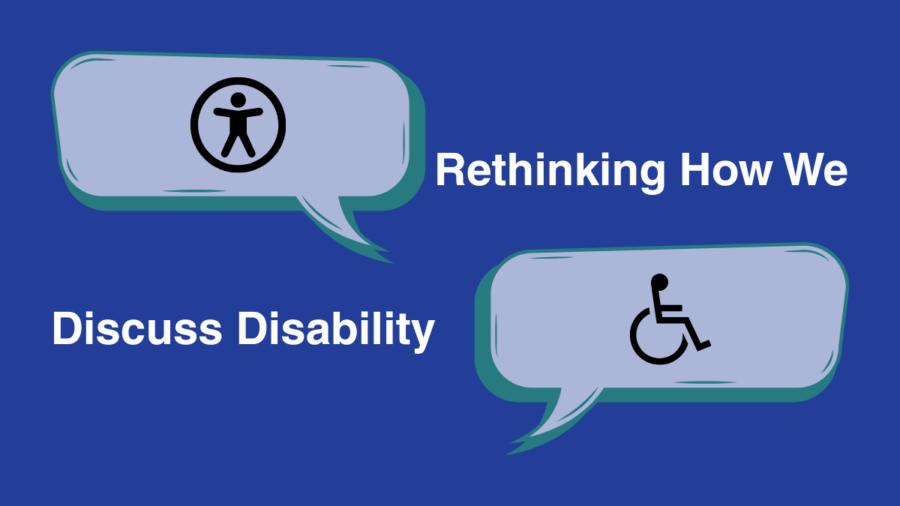
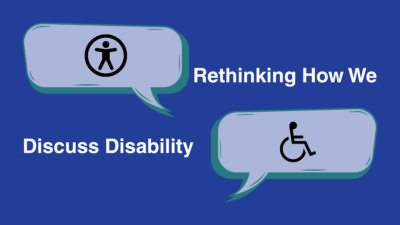 Language has the power to shape how we see each other. The words we use to talk about disability influence how people feel, how they are treated, and how fully they are included in our communities.
Language has the power to shape how we see each other. The words we use to talk about disability influence how people feel, how they are treated, and how fully they are included in our communities.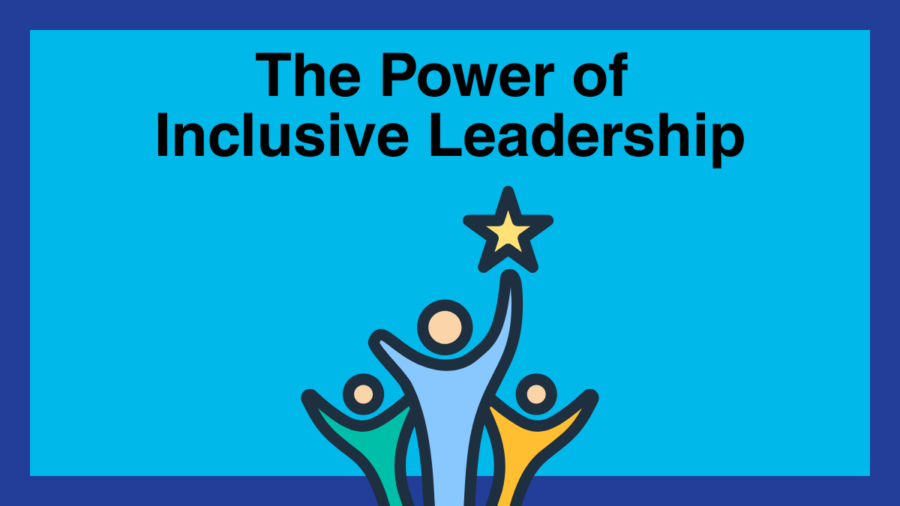
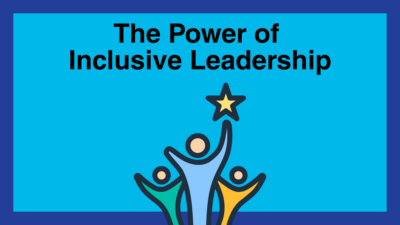 Welcoming disabled individuals into leadership brings fresh perspectives, challenges stereotypes, and deepens the sense of belonging for all. When leadership is truly inclusive, faith communities become more compassionate, equitable, and reflective of the diverse people they serve.
Welcoming disabled individuals into leadership brings fresh perspectives, challenges stereotypes, and deepens the sense of belonging for all. When leadership is truly inclusive, faith communities become more compassionate, equitable, and reflective of the diverse people they serve.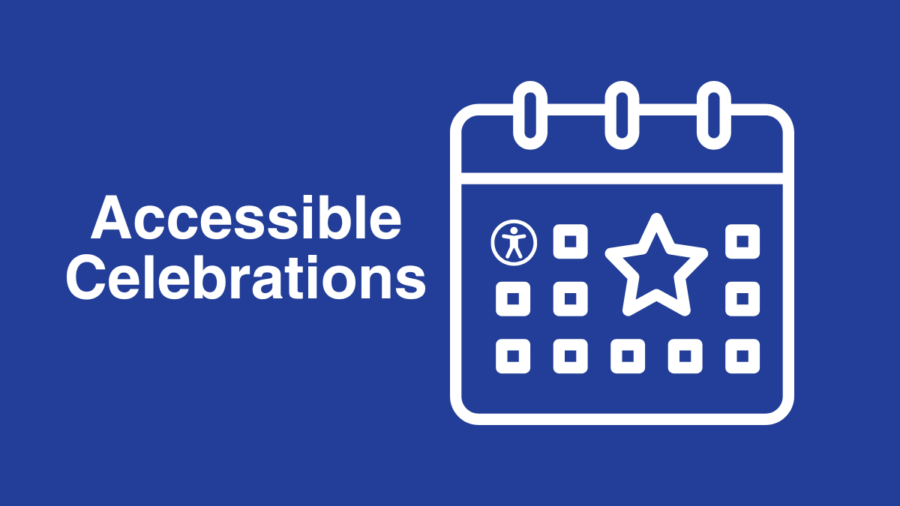
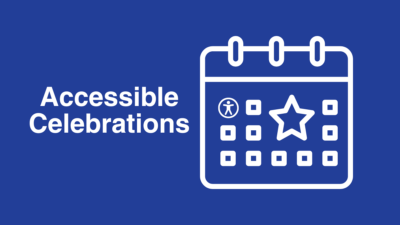 As we begin the spring season, we recognize several important religious observances happening across different faiths. Embracing and accommodating these events within our faith communities fosters inclusivity and respect for all traditions. It’s essential that we create spaces where everyone, regardless of ability, can fully engage in these celebrations.
As we begin the spring season, we recognize several important religious observances happening across different faiths. Embracing and accommodating these events within our faith communities fosters inclusivity and respect for all traditions. It’s essential that we create spaces where everyone, regardless of ability, can fully engage in these celebrations. 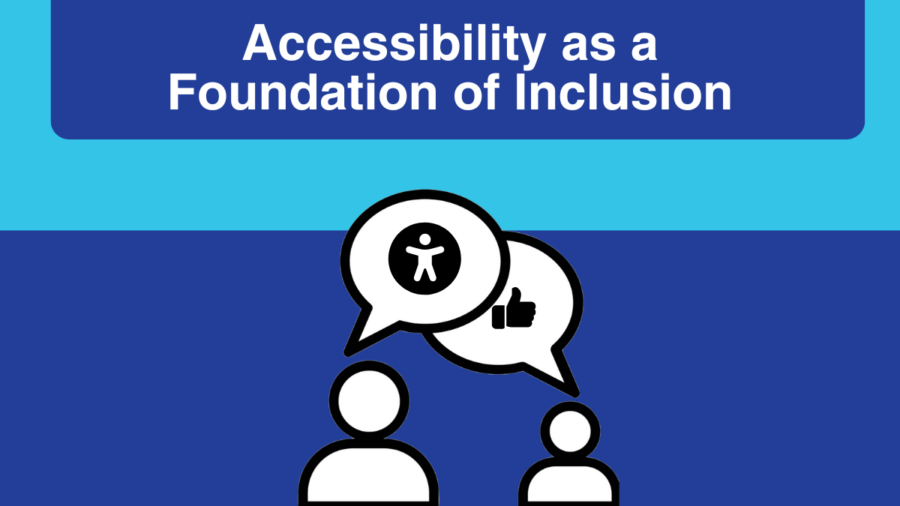
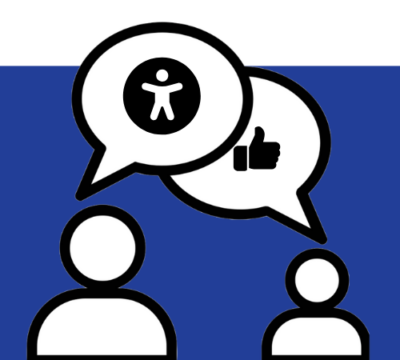 Accessibility is not just a checklist to tick off; it is an ongoing commitment to ensuring that all members, from every background and belief, feel truly valued and embraced. Every individual, regardless of ability, should have the opportunity to fully engage in worship, rituals, traditions, and community life. Creating and nurturing an accessible faith community is a profound testament to the power of inclusion, the depth of belonging, and the strength of our shared humanity.
Accessibility is not just a checklist to tick off; it is an ongoing commitment to ensuring that all members, from every background and belief, feel truly valued and embraced. Every individual, regardless of ability, should have the opportunity to fully engage in worship, rituals, traditions, and community life. Creating and nurturing an accessible faith community is a profound testament to the power of inclusion, the depth of belonging, and the strength of our shared humanity.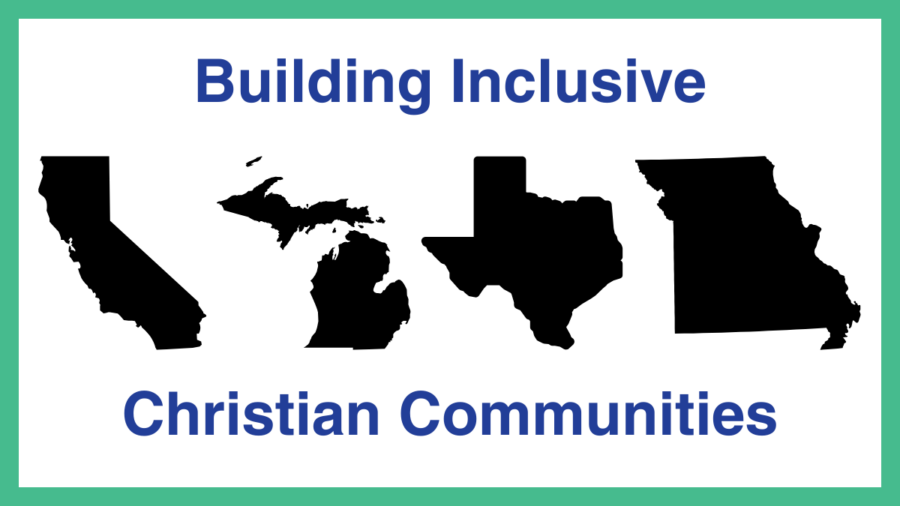
 We are happy to announce the launch of our pilot project Raising Awareness and Advancing Disability Inclusion in the Christian Community, made possible by a generous Vital Worship, Vital Preaching Grant from the Calvin Institute of Christian Worship (CICW), Grand Rapids, Michigan, with funds provided by Lilly Endowment Inc.
We are happy to announce the launch of our pilot project Raising Awareness and Advancing Disability Inclusion in the Christian Community, made possible by a generous Vital Worship, Vital Preaching Grant from the Calvin Institute of Christian Worship (CICW), Grand Rapids, Michigan, with funds provided by Lilly Endowment Inc.